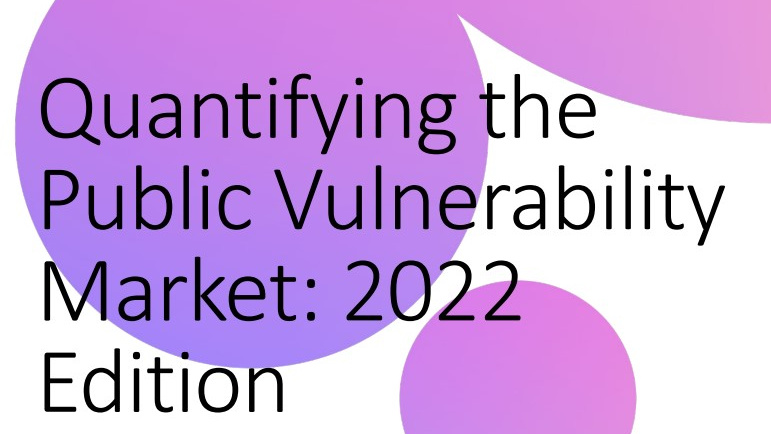North Korean hackers allegedly targeted Indian space agency
The Dtrack malware infection successfully disrupted an active lunar mission


At least five critical Indian government agencies have been reportedly targeted by North Korean hackers in recent months, including its atomic regulatory board and space agency.
The Indian Space Research Organisation (ISRO) was alerted by a US cyber security company to a potential malware breach in early September, according to the Indian Express. The alert suggested that cyber criminals had infiltrated master 'domain controllers' at the Kudankulam nuclear power plant and the ISRO using the same malware strain.
The incident also may have had an effect on a failed lunar landing mission, Chandrayaan 2, which was due to touch down approximately 100 hours after the attack struck, sources who spoke with the newspaper said.
This mission was due to make a soft-landing on the Moon's South Pole on 7 September but lost contact with the earth station.
India's National Cyber Coordination Centre, similar in nature to the UK's National Cyber Security Centre (NCSC), was tipped off on 3 September about the attacks, with the power plant breach becoming public knowledge just last week.
The attackers were among at least five launched against India's critical national infrastructure, according to the founder of cyber security firm Security Brigade Yash Kadakia, speaking with the FT.
The malware strain itself was identified as Dtrak, which could allow cyber criminals to gain control over any and all infected devices. The 'domain controllers' targeted were server computers that responded to security authentication requests.
Get the ITPro daily newsletter
Sign up today and you will receive a free copy of our Future Focus 2025 report - the leading guidance on AI, cybersecurity and other IT challenges as per 700+ senior executives
The Kudankulam plant initially said no cyber attack on its systems were possible, but the Nuclear Power Corporation of India which runs the plant conceded later that an infection had spread into the administrative network.
People within the respective agencies are reported to have opened phishing emails that were sent by the hackers, which led to the malware infiltrating agency systems.
Dtrack has been associated with activity by the Lazarus group, Kaspersky's SecureList platform suggests. The Lazarus Group has, in turn, been previously associated with the North Korean state.
A variation of the strain was last used on a widespread scale in 2018 in the form of a banking malware that targeted Indian banks. Analysis by Kaspersky showed the malware was designed to be planted on ATMs, where it could read and store information from cards inserted into the individual machines.
This attack may have been part of its 'FASTCash' scheme, identified by Symantec, through which Lazarus aimed to steal millions of dollars from ATMs across the world.

Keumars Afifi-Sabet is a writer and editor that specialises in public sector, cyber security, and cloud computing. He first joined ITPro as a staff writer in April 2018 and eventually became its Features Editor. Although a regular contributor to other tech sites in the past, these days you will find Keumars on LiveScience, where he runs its Technology section.
-
 Asus ZenScreen Fold OLED MQ17QH review
Asus ZenScreen Fold OLED MQ17QH reviewReviews A stunning foldable 17.3in OLED display – but it's too expensive to be anything more than a thrilling tech demo
By Sasha Muller
-
 How the UK MoJ achieved secure networks for prisons and offices with Palo Alto Networks
How the UK MoJ achieved secure networks for prisons and offices with Palo Alto NetworksCase study Adopting zero trust is a necessity when your own users are trying to launch cyber attacks
By Rory Bathgate
-
 Three ways to evolve your security operations
Three ways to evolve your security operationsWhitepaper Why current approaches aren’t working
By ITPro
-
 Beat cyber criminals at their own game
Beat cyber criminals at their own gameWhitepaper A guide to winning the vulnerability race and protection your organization
By ITPro
-
 Quantifying the public vulnerability market: 2022 edition
Quantifying the public vulnerability market: 2022 editionWhitepaper An analysis of vulnerability disclosures, impact severity, and product analysis
By ITPro
-
 Same cyberthreat, different story
Same cyberthreat, different storyWhitepaper How security, risk, and technology asset management teams collaborate to easily manage vulnerabilities
By ITPro
-
 Business value of ServiceNow security operations
Business value of ServiceNow security operationsWhitepaper Experience transformational gains from automating workflows and data-sharing among IT, security, and risk teams to rapidly remediate threats
By ITPro
-
 Cybercriminals are resilient. How about you?
Cybercriminals are resilient. How about you?Whitepaper Stay ahead of those agile bad actors
By ITPro
-
 Threat Intelligence: Critical in the fight against cyber attacks, but tough to master
Threat Intelligence: Critical in the fight against cyber attacks, but tough to masterWhitepaper Discover why many claim Threat Intelligence is extremely important in protecting their company and data
By ITPro
-
 State of ransomware readiness 2022
State of ransomware readiness 2022Whitepaper Reducing the personal and business cost
By ITPro